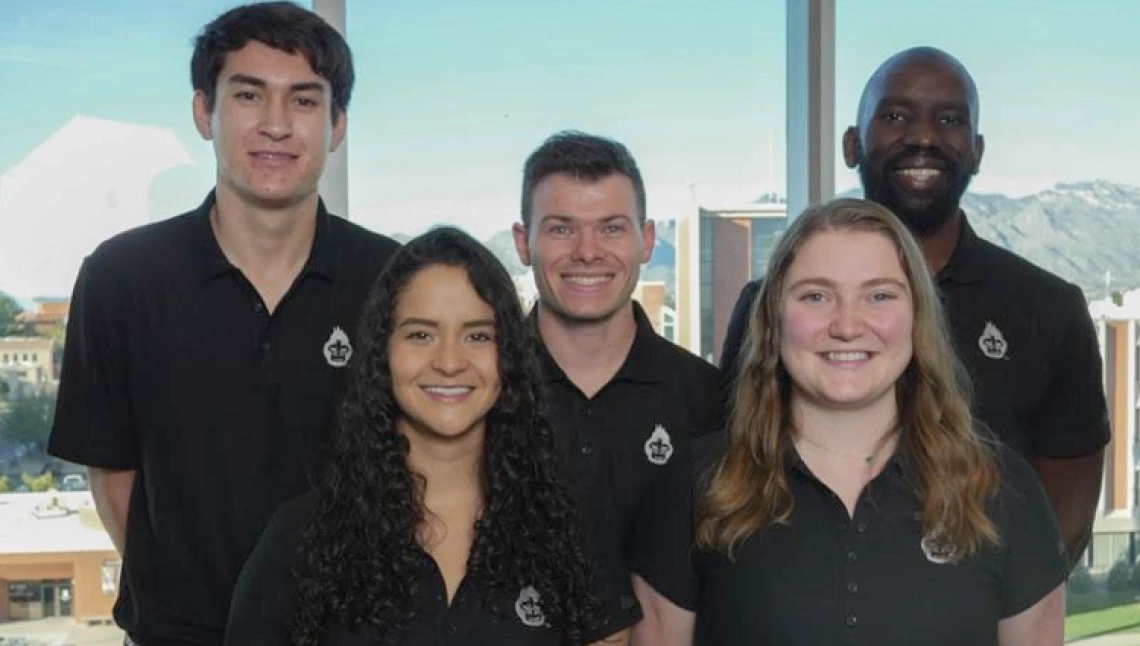BME Seniors Win Top Prizes at First Virtual Design Day

For nearly two decades, the University of Arizona College of Engineering Design Day has been a celebration of seniors, who spend their yearlong capstone course designing and building technology for industry and university sponsors. COVID-19 restrictions meant that this year's students could no longer work together in person, and that timelines were cut short. But despite this, engineering seniors presented their creations online and got their due in a virtual awards ceremony.
This was also the first year the day was celebrated as part of the Craig M. Berge Engineering Design Program. Craig M. Berge earned his degree in mechanical engineering at the University of Arizona in 1957. After his passing in 2017, his family, including his wife and fellow UA alum Nancy, made a generous gift to the college. The funds endowed a dean’s chair and named a program that provides hands-on design experiences for undergraduates at all levels.
The winners of the $7,500 Craig M. Berge Dean’s Award for Most Outstanding Project created an osteotomy guide for distal tibia deformity correction for Paragon 28, a Colorado-based company specializing in products for foot and ankle surgeries. This surgical procedure involves either removing or adding a wedge of bone to a patient’s tibia to properly align it with the ankle joint – relieving osteoarthritis symptoms and preventing pain in the hips, knees and lower back. In the current procedure, surgeons look at the surgical site using radiographic visualization, place pins to guide the cut, and do any corrections freehand.
“This has a high risk of error and requires a high level of skill, which prevents less-experienced or less-specialized surgeons from being able to perform this procedure,” said BME team member Melissa Requist. “Our device improves upon these issues by allowing surgeons to make accurately measured and repeatable cuts.”
The $5,000 Raytheon Missile Systems Award for Best Overall Design went to a biomedical project as well. The team, which also won the Rincon Research Award for Best Presentation, created a sensor to measure the levels of fluid reagents for Tucson-based sponsor Roche Tissue Diagnostics.
The W.L. Gore and Associates Lifelong Innovation Award went to an Intel sponsored team. The students developed an easy-to-use system for gathering data about epileptic seizures. The device can be used to train an artificial intelligence system to recognize seizures occurring while a person is sleeping. Ultimately, this could lead to technology that alerts caregivers to when a seizure is occurring.
“This project has prepared me for life after school, as I’ve learned professional, social and academic skills that will have an impact on my professional career,” said team member and BME student Alejandro Ortega. “I also learned the value of getting out of your comfort zone to achieve great things.”
The Mark Brazier Award for Best Biomedical System Design went to the team who designed a Precision Brachytherapy Device for Esophageal Cancer, sponsored by BME.
